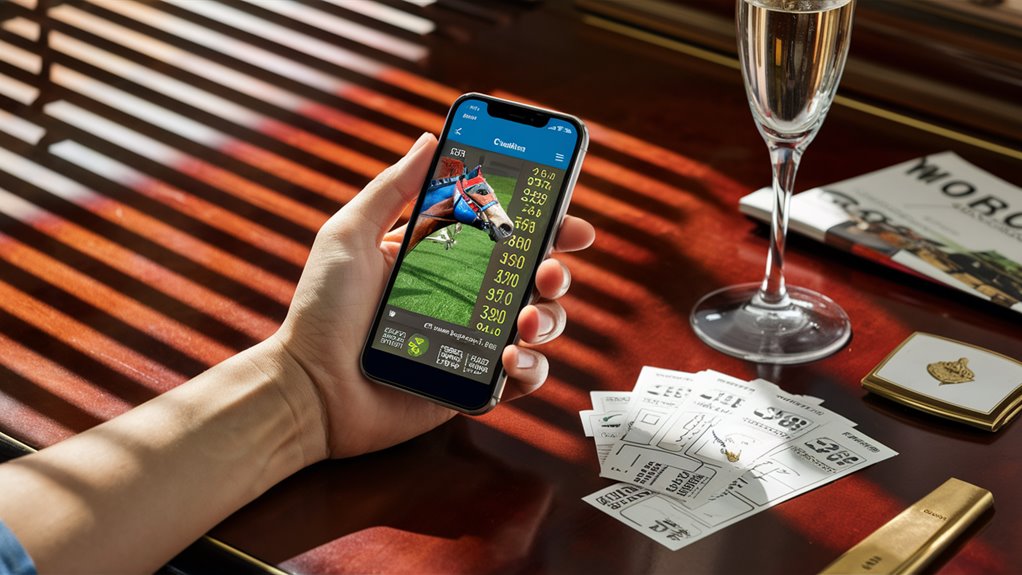Good Examples of Responsible Gambling Practices
Proof
Setting Financial Boundaries requires responsible gaming, which in the first instance means setting strict limits. This is not a copying down of ads for casinos or a gig for their total expenses, but some kind of exact bankroll.
Control Your Emotions
With Money Management
Use the money management envelopes method to control your bankroll in such a way that you will never be broke.
For each gambling session, put aside a fixed amount.
Keep a complete record of the money wagered (or won and betting).
Use tracking apps that allow you to monitor how much time was actually spent gambling, both positively (awards for good behavior) and negatively.
Keep your gaming money separate from everyday household financial matters.
Self-management Techniques for Embankment Control Are Vital
Step away from good habits and evil thoughts.
Recognize me as an influence on my own mind.
Successful Gaming
The best way to maintain control from the outset is to stack Infusing Color-Themed Strategies for Sustained Wins the odds in your favour before you even step foot inside a casino.
Always stake with legitimate operators.
Pick out games of skill that offer a lower house edge.
Employ sensible game strategy.
Are you chasing your losses by quickly switching to another game? Discover step-by-step prospects.
Successful Gambling
For successful enjoyment and/or profit from gambling, design the best responsible gambling plan.
Set achievable goals and never give up on them.
Provide a constant track with detailed records.
When a responsible program is available, sign up.
Organize an ongoing respionage organ network.
Stay within the budget restrictions.
Responsible Gaming: A Budget
A clear money budget means that money meant for gambling is kept clearly separate. Gambling bankrolls are an excellent foundation for any serious bettor. Provide two great limitations on your monetary activities: a complete monthly budget and individual boarders.
Envelope System for Great Banking Control
To practice strict bankroll management, check this alternative:
If the dented yellow permits you to withdraw the bankroll so hard already predetermined.
Make sure where each session amount is kept separate.
Stop betting that day if you happen to reach your limit.
Do not start to solicit credit cards or funds that were loaned to you (i.e., gambling with money borrowed at exorbitant interest rates).
Divide Bankroll Strategically
Thoughtful bankroll management requires organized distribution.
Divide the total amount of funds at your disposal into units that can be considered a minimum of 20 session-sized ones.
E.g.: $1,000 Month Bank Roll = $50 A Session.
Prevent quick losses.
Ensure the most entertainment for outlay.
Keep betting sustainable.

Tracking and Accountability
To avoid any ambiguities, keep a complete Riding Subtle Currents in Live Casino Sessions record of all bets placed:
Dedicated gambling journal or tracking app.
Record both wins and losses.
Track spree betting mode.
Analyze own gambling behavior.
Ensure that the $ numbers you play do not exceed your $ bankroll amounts. This systematic approach to controlling money promotes healthy habits.
Track All Gambling Activity
A Thorough Guide to Tracking Las Vegas Wagers.
What Should Be Included in Your Betting Diary
Record keeping of all wagering activity is at the heart of responsible betting management. A comprehensive tracking system must trace every single betting transaction, recording details such as dates, that big players of the day can call up anytime they want! amounts, plays their numbers in which place and wins or loses it all.
This systematic approach allows for the recognition of patterns and serves as a telling guide.
Useful Tracking Methods and Tools
Digital tracking applications and dedicated gambling diaries are the optimal solutions for tracking one’s gambling activity in any true sense. Key statistics to record are:
win/loss ratios.
length of sessions.
moods.
Fluctuations in the large amount of money on hand.
Betting patterns.
Monitoring Both Digital and Physical Gambling
Session Record Mapping Hidden Pathways in Multi-Table Tournaments Requirements
As stringent as possible with:
Behavioral Pattern Analysis what to record about betting behaviors.
Who- Date of betting.
How- Progression of abilities Session end time.
How much money- Record the stake amount.
Behavioral Psychological Analysis Elements
Record triggering events and backgrounds to gambling bouts. This data helps:
Identify risk elements.
Spot behavioral trends.
Reflect on impact of these actions.
Frequency distribution.
Where is the bottom line?
By examining these statistics each week, we can ensure that we are maintaining all financial and gambling commitments in a responsible manner.
Recognizing Warning Signs
Key signals of when to quit gambling are:
Your level of nervousness while playing.
Increasing the size of bets to get even.
Borrowing money to gamble with.
Using money needed for living expenses for gambling.
Leave the casino the instant these danger 먹튀검증커뮤니티 signs appear, without a backward glance.
Limits on Winnings and Time Management
Win thresholds are just as important as the maximum amount you’re willing to lose.
Real-life gambling is tilted toward the casino through the mathematics of house edges. Set defined time limits for betting sessions and stick to them rigidly whether you win or lose. It is well known that players who walk away from the table after a big score not only keep their winnings but also keep their betting habits wholesome.
I must plan to leave the casino before I enter. Successful gambling management requires:
Specific breakpoints for gains and losses.
Complete commitment to time limits previously laid down.
When warning signals are displayed, determine your immediate withdrawal strategy.
Players with a sense of responsibility will understand that a planned withdrawal saves both the storyteller’s purse and the feeling of well-being.
Emotional Self-management Skills
Mastering the Art of Self-Regulation for Responsible Gambling
Understanding emotional control in gambling
The basis of stable gambling is this: Learn how to manage your feelings. Winners recognize that only by constant attention to their emotional states can good control be maintained during playing sessions.
With mental preparation and emotional awareness, we can resist bad behavior brought on by the stress, depression, or anxiety.
Practice mindfulness techniques.
Mindfulness is a great way to keep emotions balanced while gambling. By practicing deep breathing exercises, staying in the present moment and checking on your emotional state regularly, you can stay sane despite all the madness that surrounds you.
Strategic intermissions are necessary when one’s temper is aroused, or there’s too much excitement and zeal in an over-stimulating environment. However, how is one going to do this?
After rigorous experiments, it has been proven that organized emotional management can effectively reduce impulsive betting behavior greatly. Specifically, a structured pre-betting routine includes: Checking one’s emotions (with a ranking scale from 1 to 10 so you don’t have to think about those numbers when betting). Keeping an emotional diary specifically for betting records. Surveying the patterns for triggers towards betting activities that VIP spend then teach them A predetermined emotional level should be set as a condition for entering into any betting activity.
Cognitive Behavioral Therapy (CBT)
Cognitive behavioral therapy (CBT) is a classical example of this approach. Professional support is a method to offer unambiguous direction and:
Techniques for dealing with stress.
Mechanisms of impulse control.
How to build emotional hardiness.
Game Selection
The basic theory behind responsible gambling is strategic game selection. Mechanics of the game and the odds. Game selection is the most important factor for determining the outcome of gambling activities and the amount of money a person’s exposure to loss becomes. Bluetooth and poker are highly fair games. They systematically let you be a winner as long as the conditions are right. In contrast, completely random-type luck-dependent games have no control at all over their results. These require players with quick thinking and knowing what they want to do on every point, or else luck will take over the game in output.
Games made their debut. Qing-type computer games: The basic forecast may not hold. It is well established that gambling games with the literary and of information about winning chances to hand the advantage in favour of the better-off.
Lower house advantage games with less risk of rip-offs and easily understandable odds act as the keystone of a game plan with those requirements. A few examples are: Baccarat’s odds of winning change depending on how jam attempts they are handled; A good strategy for getting high-hand totals (there being 16 ways to do this against only 10 bad hands such as 8+8 = 12).
Another point to look for is the game pace — faster pace games make betting more thoughtless and increase the risk of impulsive behavior. It is important to avoid games designed to psychologically ensnare players. Drive games make (lack the desired one) more clear mathematical odds. Probable advantages mean reasonable returns. Skill levels with measurable returns. Gamers must take a responsible approach to what kind of risks they can afford to take.










